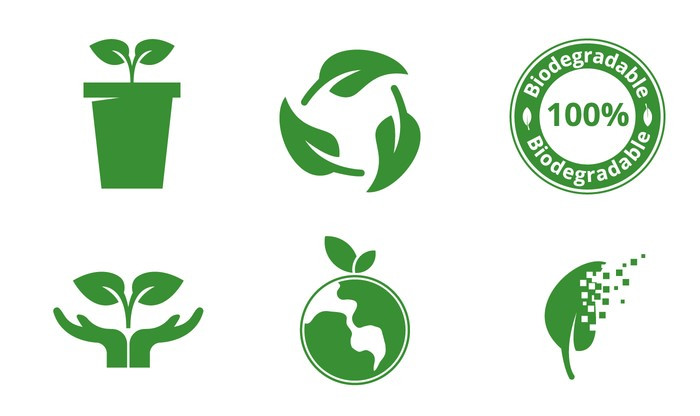
Biodegradable: Not the Be-All and End-All
11th Aug 2020
You might be walking through the supermarket and see the words 'biodegradable', 'degradable', or 'compostable' on a faux-plastic item. It might be rubbish bags or cling wrap. That's good, right? These materials are good for the earth! Not necessarily. Here, we explain the difference between compostable, biodegradable, and degradable, and why the names can be misleading.

Compostable
Compostable plastic will biologically degrade in a compost site. Compostable plastic is capable of biological decomposition in a compost site. Most international standards require the material to biodegrade 60% in 180 days, and leave no toxic residue. 'Compostable' is a certification, which means any item labelled as such must meet three strict criteria:
- Biodegrade: break down into carbon dioxide, water, biomass, and inorganic compounds at the same rate as cellulose (paper)
- Disintegrate: the material is indistinguishable from the rest of the compost
- Eco-toxicity: the material does not product any toxic residue during decomposition, and the compost can support plant growth
Composting happens in certain environments which involve microbes and the right temperature. Some compostable items, such as paper and food waste, can be composted in a home compost bin – others, like bioplastics, usually require an industrial composting facility.
Biodegradable
Biodegradable materials will break down due to microorganism activity, but they do not have to be non-toxic or even certified. Biodegradable plastic will degrade from the action of naturally occurring microorganisms over time, just like compostable plastic. However, there is no requirement for 'no toxic residue' or a specified time taken to degrade. In fact, 'biodegradable' is not a certification, which means anyone can claim a product is biodegradable and not have to prove it.
Degradable
Some materials will break down, but often they simply break into smaller pieces of plastic and cause harm to wildlife. Degradable plastic will undergo a significant change in its chemical structure under specific environmental conditions. This change is not due to microorganisms. In many cases, degradable plastic will simple break down into smaller pieces, creating microplastics which are extremely damaging for wildlife and human health.
The Caveat with Compostable and Biodegradable
In landfill, compostable plastic is no better than oil-based plastic. Even with compostable and biodegradable plastic, disposing of them in landfill will not be more beneficial than disposing of conventional, oil-based plastic. For compostable plastic, especially, to be better for the environment, it has to be disposed of in a composting system. In landfill, any organic waste – which includes bioplastics – will release methane as it breaks down, a greenhouse gas about 86 times more potent than carbon dioxide. So don't put that 'green' cling wrap in the ordinary kitchen bin.
Information taken from World Centric. Read about the different eco-materials and how to take on plastic free at the supermarket, on our blog.
Planet Friendly Packaging acknowledges the traditional custodians of the land on which we work. Our thoughts go out to everyone affected by COVID-19. Stay safe.

